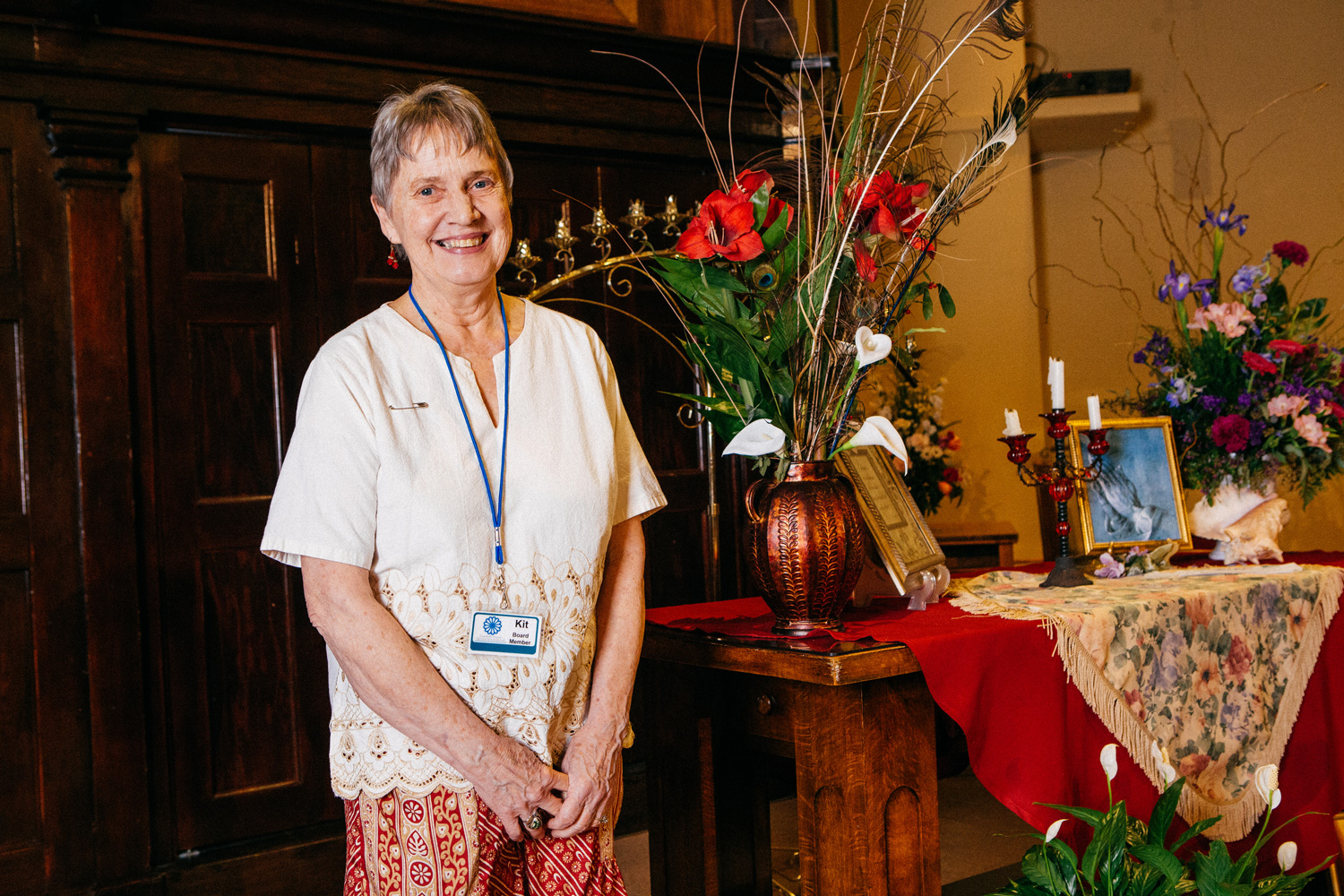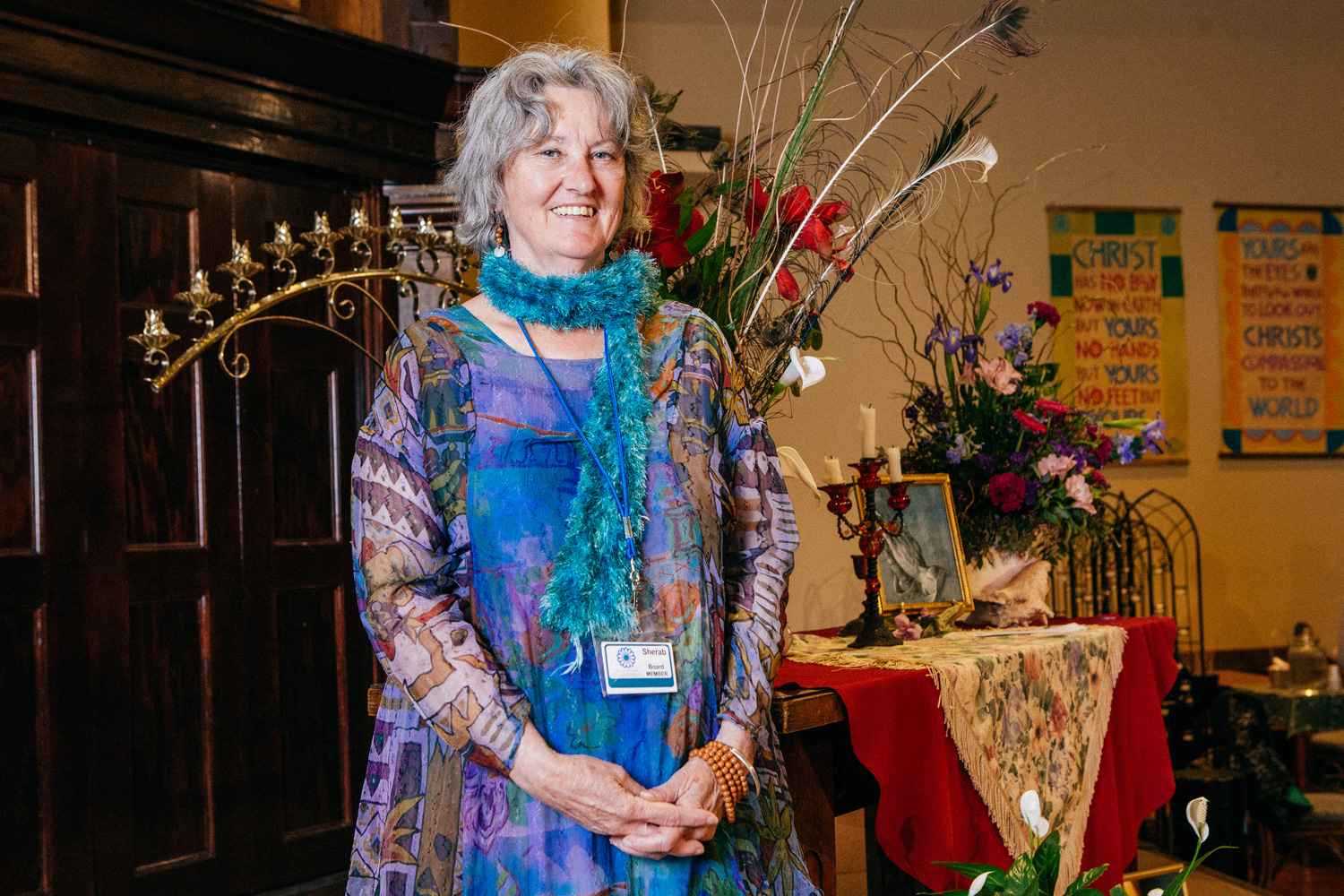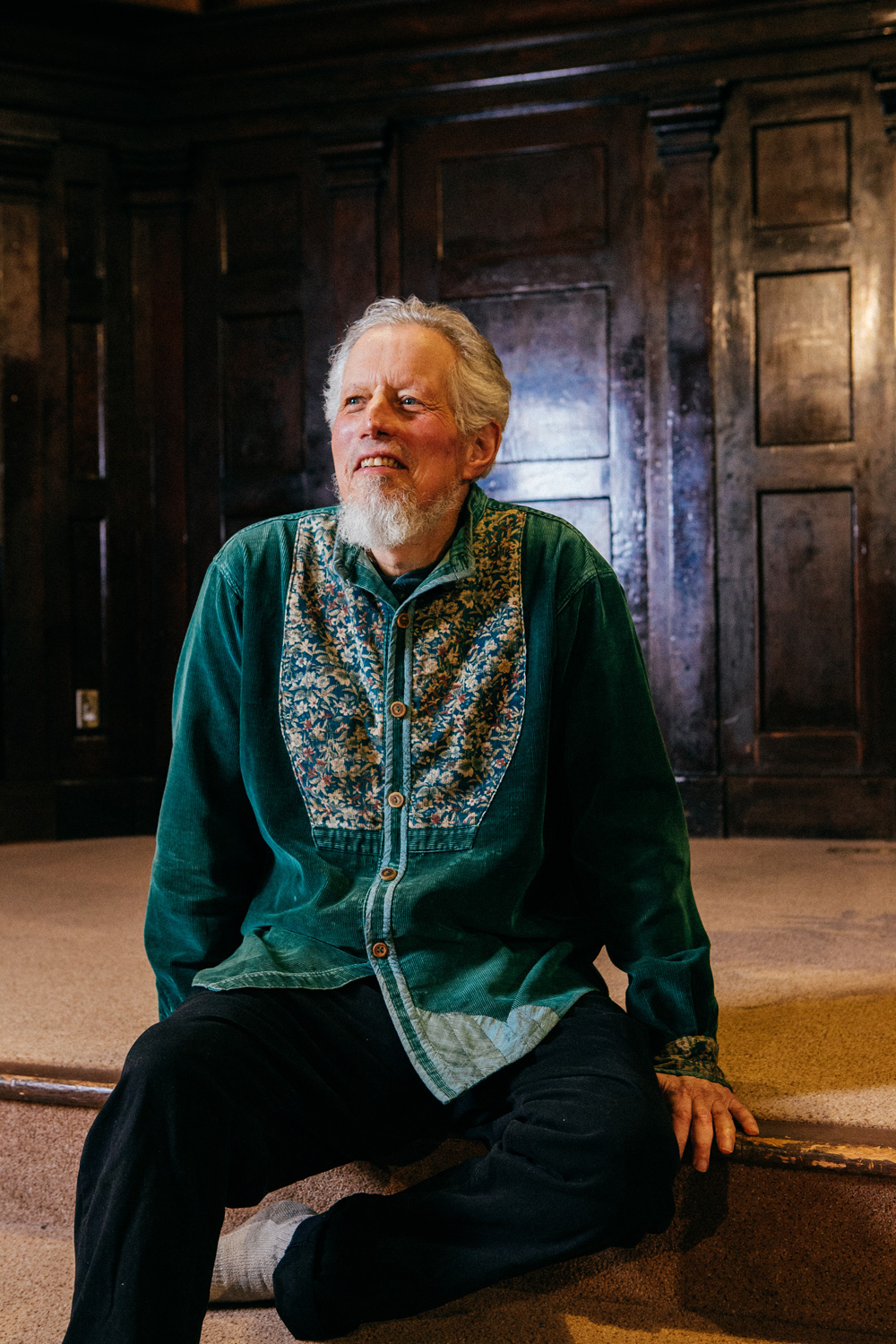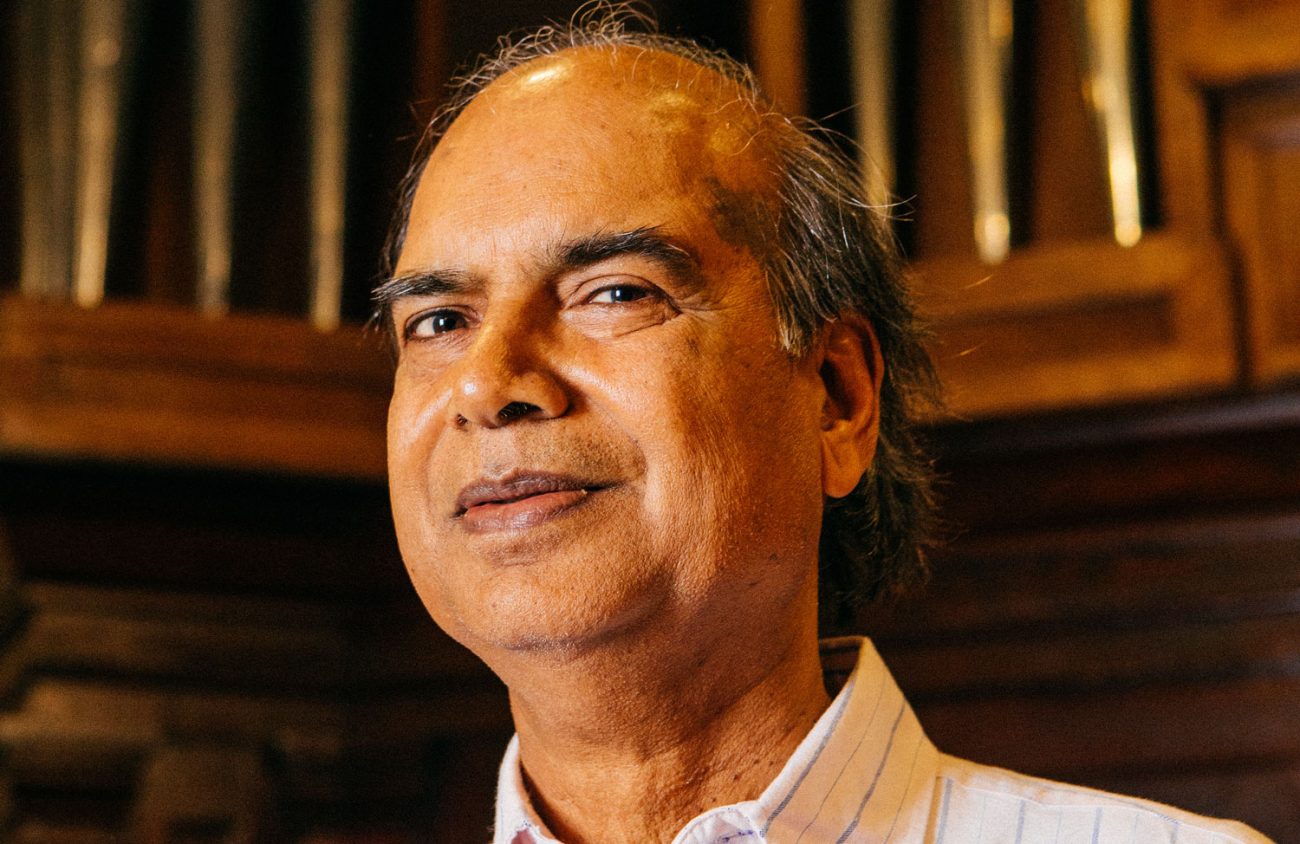On Sept. 11, 2001, an informal interfaith prayer gathering took place on the steps of the former City Hall building in downtown Eugene.
One month later, members of the Sikh, Hindu, Christian, Jewish, Muslim, Baha’i and Native American communities organized an interfaith service at First Christian Church in Eugene. It was the start of the longest running interfaith service in North America.
Since then, the Interfaith Prayer Service International (IPSI) organization has held 187 services to pray for peace, celebrate differences and embrace the world’s diverse faiths. These services have become a safe gathering place for people of all religions to connect with people in the community.
Enlarge

IPSI board member Kit Frisinger, a Christian representative, says she recalls the shock she experienced watching the morning news on Sept. 11 terror attacks that led to U.S. retaliation. Even today she says, “I feel terrible that we are bombing right now. We haven’t stopped using weapons of destruction and violence.”
The nonprofit holds a service on the eleventh of every month, with 12 board members representing a variety of religious beliefs. Currently, the IPSI board is seeking Jewish and Muslim representatives.
Longtime board member Arun Toké was involved with an interfaith dialogue group in Eugene before assisting with the IPSI’s establishment as a nonprofit. A few years after the terror attacks, his friend and professor asked him to become the Hindu representative for IPSI. Siri Kaur Khalsa-Harris, who was a Sikh representative, and her husband, Bill Harris, of the Baha’i faith, helped establish the group as a nonprofit in 2006.
“And so we all talked about the benefits of doing this a particular way, which is totally non-political and, of course, interfaith and egalitarian,” Toké says of the early stages of organizing the group created in the wake of the Sept. 11. Khalsa-Harris wrote a letter in 2006 to potential IPSI board members proposing the idea of a permanent interfaith prayer service. She wrote that in 1996, while in deep meditation, she “was made aware that [she] should initiate a regular coming together of devotion from all faiths, especially those who might be or will be experiencing painful times.”
Enlarge

After meeting Khalsa-Harris at a Sikh gathering, Sherab Tenaj was inspired to join the board as a Buddhist representative. Tenaj says Khalsa-Harris’s “vision was so connected with the interfaith service that she really had the passion to make it last for a long time.” Khalsa-Harris passed away in 2012.
After the attacks, hatred towards Muslims became widespread. The group saw an urgency to bring people together. So when this diverse religious community in Eugene saw an opportunity to facilitate intercultural understanding and provide a haven for all religions in response to watching the nation grapple with fear, grief and violence in 2001, they had no idea the need would remain constant.
Arun Toké: Past and Present
Toké is also the founder and editor of Skipping Stones, a children’s literary magazine. “I grew up in Indore, India,” he explains. “Our neighbors spoke different languages. Some of them were Muslims, some were Sikh, some were Hindus and some were Christians.”
The inspiration behind Skipping Stones came from a Gandhian ashram in India. “Gandhi used to say that if you want a fruit, you plant a seed and nurture that,” he says, pointing to a photo of Gandhi above the magazine racks in the magazine’s office.
Toké’s vision of promoting cultural understanding began by connecting children around the globe with pen pals and publishing essays written by kids from different countries and faiths — and ultimately cultivating a magazine that has hosted intercultural dialogue for more than 27 years.
Throughout his life, Toké has relied on reciting the mantra of Lord Rama, a Hindu god, whenever he feels worried or afraid. Once he drove an old Volkswagen to California with his wife and son, and says he chanted the mantra the entire way. “My neighbor said, that must have taken a lot of prayers,” Toké recalls. “It helps to have that external, that spiritual energy and knowing that somebody is there watching over you.”
No one currently involved with the group expected the services to last more than a few years. Nationwide, violence targeting numerous religious groups has ebbed and flowed since the group’s founding.
Muslims continue to be targets of hate crimes in the U.S. The Southern Poverty Law Center reported a 197 percent increase in Muslim hate groups from 2015 to 2016.
An uptick in threats of violence against Jewish Community Centers and vandalism in Jewish cemeteries have dominated headlines since the election of Donald Trump — who waivered and hesitated to condemn the vandalism and threats.
In 2017, the Anti-Defamation League has recorded a plethora of anti-Semitic incidents in the U.S., which include 161 bomb threats, 155 vandalism incidents and six physical assaults. An Israeli teen was arrested recently and is accused of making over 2,000 threats to institutions worldwide.
Envisioning Peace
The board members of IPSI say they have worked hard to avoid politicizing the group, but when the Muslim and Jewish communities have experienced threats and violent incidents, IPSI has supported them.
Though many of the nonprofit’s members are active in the social justice community, they agree that its mission is important because it celebrates acceptance, other religions and peace.
Enlarge

“It’s not — well to me anyway — it’s not about religion,” says board president Hafiz Lealand, who represents Sufism. “It’s really about unity as it says in the program I think, its about unity and peace and a safe place for people to be right free of politics and discrimination and other negative things, which seem to be little bit on the rise since November.”
Just after the presidential election, Lealand says, the number of people attending services doubled.
“In 2001, there were some threats against the Islamic community after Sept. 11, and so at that time we all went as a group to hold a vigil there [at the mosque] and then when there was a similar issue with the Temple Beth Israel, there was also a vigil there,” Toké says.
Although the group is firm about its nonpolitical principles, the board members do not believe that the attempted Muslim ban is a political issue.
“As far as the political aspect, suggesting or saying that we are not for the ban, I don’t think it’s political because it’s more [of a] human issue, it’s more about unity. But of course if we say don’t elect or elect Trump — that is political,” Toké says.
Tenaj says the Muslim ban is “very sad. I mean I know that several of us have gone to the mosque … to make deeper connections and really letting them know that we are very supportive of them as a community.”
Toké recalls a time when he was discriminated against in Eugene. “Once right on Park Blocks and once on 17th and Willamette,” he says, people yelled at him to “Go back to Iraq” in the early ‘90s and the early 2000s.
“The way I feel about it is, for one, it’s ignorance,” he says. “They don’t even know that I’m not Muslim or I’m not from the Middle East just because I look dark.”
Toké says that the few incidents are “minuscule compared to the overwhelming support that I get here of people smiling and saying good morning or good evening, and the way they say it is almost like you’re their long lost friend or something.”
One of IPSI’s goals is to “pray for peace,” a vision that varies among board members.
For Frisinger, a member of First Christian Church, peace is a global vision. “We need to love and accept each other as children of God, of one human race,” she says. “We’re all alike no matter what our religion or ethnicity.”
And although social justice beliefs and political views are absent from the services, some board members are active in important social justice movements.
“I do bring in social-justice peace issues and things of that nature in the magazine even as a nonprofit because I feel like if we cannot educate, if we cannot discuss these important issues, then nothing can change,” Toké says. “So yeah, you will see me in both camps.”
Frisinger is a member of Women Actions for New Direction. She says that group works to encourage women to be more involved in the political scene and to redirect military spending on human services and to educate people and elected officials on disarmament and peace.
The Interfaith Prayer Service
Every month, about a dozen speakers and musicians gather to present a one-hour themed service at the First Christian Church.
Toké says IPSI’s structure was modeled after the Parliament of World Religions, a global interfaith movement that first gathered in 1893. More than 5,000 delegates met in Chicago to discuss unity and a concept of global peace.
On April 11, Frisinger walks around the sanctuary — she coordinates the set up for every service. The church slowly fills up with close to 100 people and Tenaj opens the service themed “Prayers of Gratitude.”
“Because you love us, because our life is a beautiful gift of love from you, you’ve given us the opportunity to experience so many things,” she says.
Pani Soltani, a woman of the Baha’i faith, takes the stage; her voice fills the sanctuary chanting a prayer in Farsi.
Presenter Rob Tobias, representing Judaism at the service, takes a seat behind a piano and talks about celebrating Passover. He says the event marks “moving from slavery to freedom.” He adds that it’s important to acknowledge “that we are not free until every one is free.” He teaches the audience a few lines from a traditional Passover song “Dayenu,” which dates back more than a thousand years.
Siri Kirpal Kaur Khalsa, a member of the Sikh community, tells the audience that everything is God’s blessing, including pain and distress. She recalls being grateful after her recently ill husband’s fever broke. She chants an original prayer called “Singing the Praises” in Gurumukhi, a Sikh language.
Jon West of Unity of the Valley church in Eugene speaks another praise of gratitude. “I’m honored to be part of this service,” he says. Children, their parents and the congregation at large join him in singing an a cappella prayer by repeating “Ohm, Amen and Shalom.”
The hour-long service comes to a close with a couple representing the Hindu faith, Hanuman and Dhenuka Hoffman, who sit on the sanctuary floor singing “Nadalola Hrdaya,” in Telugu.
Ed Conrad, a presenter, offered a final speech of gratitude focusing on heart wisdom. “Heart wisdom distills cosmic energy and love into form. It can heal conflict and ills,” he says.
After the service, the congregation mingles, and some stay for tea and reflect on the service with the presenters.
Alex Reasoner came to see what the service was about. He’s a member of the University of Oregon’s Muslim Student Association. A practicing Sunni Muslim from Corvallis, he says that it was interesting seeing all of the faith groups represented.
“I feel welcome here,” he says. Recently, his mosque invited a group visiting from Temple Beth Israel. “We met on a weekday and had a chance to talk and make connections,” he says.
Former Interfaith Prayer Service International President Emily Farthing says coming to the service is like coming home. “I just got back from South America and what I love is everyone is different,” she says. “Presenters have different paths and it touches this deep inner core that we share.”
Farthing attended the North American Interfaith Network annual conference and says she learned that IPSI is the longest-running interfaith service in North America.
Current president Lealand says the group’s presence is far reaching. He recently spoke with a symphony conductor in Stuttgart, Germany, who wants to start an interfaith prayer service.
“As far as we know there’s no one in the world that’s been doing this every month,” Lealand says.
Embracing All Religions
Lealand says Sufism is not considered a religion but rather a spiritual path. He has been on the Sufi path for 30 years.
“Sufism has some similarities in that we try our best to embrace all religions and all paths as one,” he says. “We don’t consider ourselves the only way to god or to the one.”
As part of his practice, Lealand offers prayers in Arabic, Aramaic, Hindi and Hebrew.
Meanwhile, board member Kit Frisinger grew up with a Presbyterian minister for a father and explored many different faiths. She says it’s important for religions to come together.
“I think in knowing each other it takes away the mystery, and I would have never known the people that I know on the board now of other faiths because we are in separate groups,” she says. “This has brought us together, it’s just been probably a very spiritual high for me to be involved with these wonderful people from different faiths.”
Many people who attend services are not religious, but anyone is welcome in the sanctuary. “Our vision is to have a diversity of opinions of prayer [and] faith traditions,” Toké says.
“I think the bottom line is we just want people to feel comfortable with having people in their community who believe in different ways, who pray in different ways and not be afraid of them or to discriminate against them because they have different ways,” he says.
On May 11, IPSI will host its annual Mother’s Day service at First Christian Church at 6:45 pm. All the presenters are 5 to 19 years old and the theme is “Voices of Peace.”
